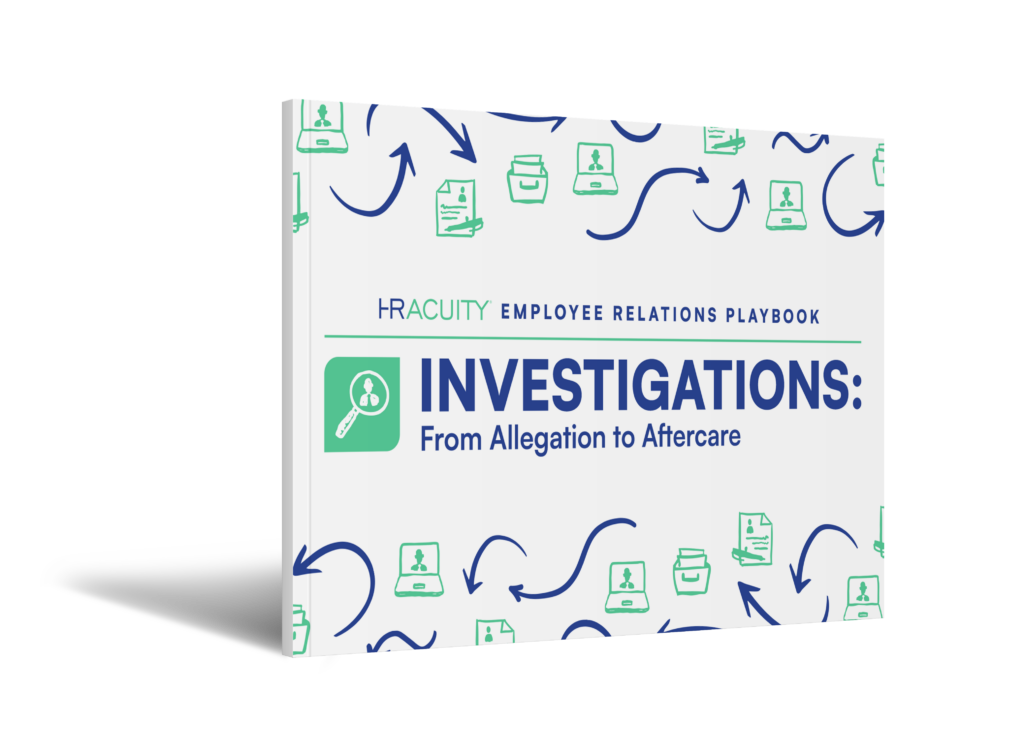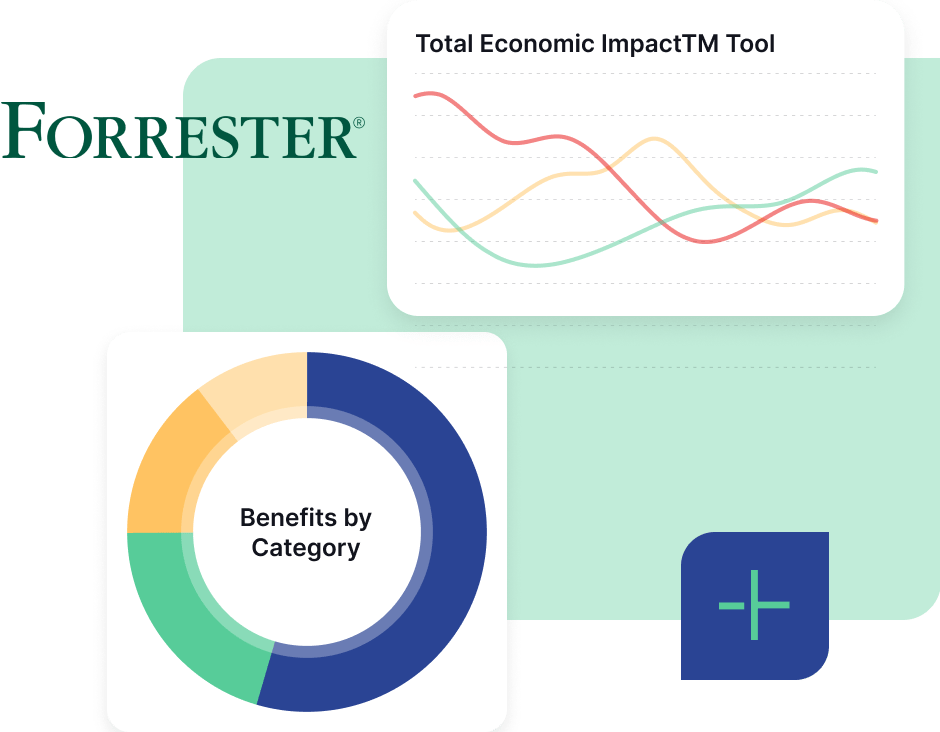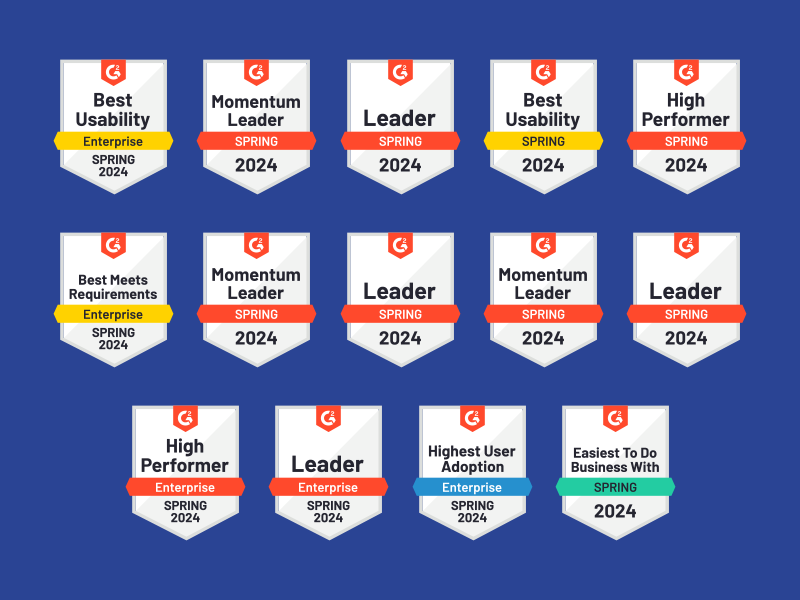Ethical employee behavior is vital for the reputation and productivity of your organization. According to Ethics.org, in 2020 only 1 in 5 employees felt that their workplace had a strong ethical culture. However, IBE reported that as the pandemic hit the country in full force, over a third of employees noticed an improvement in their organization’s ethical standards.
Simply introducing an ethics program is not enough to ensure all investigations in the workplace are treated as such. It’s up to human resources (HR) and employee relations (ER) departments to guarantee that the conduct of their employees remains within the organization’s ethical standards and that, in the event of an investigation, it is conducted in the right manner. With proper planning and implementation of best practices, you can promote an engaged workforce that actively supports the purpose of the organization and strives to be effective, ethical — and productive — members of the team.
An overview of ethical investigations in the workplace
A workplace investigation is that process that HR and ER leaders use to identify and address allegations of misconduct within an organization. Conducting an ethical investigation is important for all organizations as it can help to ensure that the company remains honest, trustworthy and aligned with its ESG (environmental, social and governance) policies. An established investigation strategy helps to identify the problems within the organization so that they can be resolved quickly.
Your ethics program should include the ethical considerations (policies and principles) that employees must follow during an investigation. Examples of ethical considerations include professionalism, effective communication, respect for all colleagues, ensuring confidentiality, and following all rules and policies of the organization. Your program will also outline the investigation process for instances of misconduct.
The main purpose of an ethical investigation is to provide a fair evaluation of what happened, why it happened and how employers can prevent it in the future. This process typically begins with a thorough examination of all aspects surrounding the case, including identifying the wrong, who was involved and why it happened.
Download the Employee Relations Playbook
Everything you need to know from
Allegation to Aftercare.

Best practices for completing a more ethical investigation
It is important that we have a clear understanding of the difference between an ethical investigation and an ethics investigation. An ethics investigation is conducted by HR or ER professionals to establish how unethical behavior in the workplace should be handled. Ethical investigations are those that take care to ensure their entire process is handled in a way that meets the ethical standards and code of conduct of an organization. It’s up to you to ensure that your investigations are effectively reaching the right conclusions and are made with little impact on the organization – and that issues are escalated to legal authorities if necessary.
An ethical investigation should not be a witch hunt or to find someone at fault, but rather it should focus on establishing the facts of what happened. The employee’s ethical role in an investigation is to remain impartial and unbiased, especially if they aren’t directly involved in the case.
The ethical integrity of whoever takes the role of the investigator is central to the investigation process. The investigator, whether an HR manager or an outsourced expert, must be impartial and not have any bias when investigating a case. To ensure the investigation remains ethical, they must also maintain confidentiality and disclose any conflicts of interest that may interfere with their work.
A common misconception about investigations is they are only for high-profile cases. This could not be further from the truth, as every employee should feel safe enough to come forward with any concerns or suspicions they have about what might be going on within their organization. Common misapprehensions of employees unwilling to come forward include:
- They don’t know how warranted their concerns may be as an issue in the workplace.
- They are unaware of whether they will be protected from retaliation if they speak up.
- They don’t know what to say or who they should report to when they do witness something happening.
Human resource leaders are responsible for ensuring that each and every employee is aware of how to report misconduct and when. Of course, we know there’s quite a big difference between an employee witnessing someone sneaking out early and ignoring examples of harassment in the workplace; therefore, outlining each instance to employees based on severity can be beneficial.
There are a few ways that HR teams can create a foundation for more ethical investigations:
- Conducting regular training on workplace ethics, including sharing what happens when a case is opened.
- Constructing a culture of transparency and accountability.
- Creating an open line of communication between employees and management.
- Adopting a zero-tolerance policy when it comes to unethical behavior.
Clear expectations will help employees know what kind of behavior they should follow when it comes to their day-to-day work. If there are certain rules that need to be followed, then your organization should make sure that they communicate these practices in easy-to-understand language so that everyone comprehends them and follows them accordingly. There shouldn’t be any “loopholes” for tempted employees to get around ethical procedures.
Regardless of the amount of care you put into your issue management system to prevent issues from escalating, it is often out of your control that these will require intervention and investigation. Therefore, having a solid and formal plan in place to deal with investigations ethically will greatly decrease the risk it will have on the reputation of your organization.
Remember, your goal during the investigation process is not to find all the proof and facts involved in a case. Often, this is impossible when much of the information gathered is hearsay. Instead, determining credibility based on the likelihood of a story, how much evidence supports various “sides” and whether there is more than a 50% chance that the account is true.
Defining compliance in an investigation.
By definition, compliance is a process of fulfilling legal obligations and duties. In order to maintain an ethical workplace, employers must have policies in place that protect their employees from harassment, discrimination and retaliation. They must also train HR managers and supervisors on how to deal with these issues when they arise.
Certain behaviors are considered unethical in the workplace, such as nepotism, bribery and discrimination. These conducts are illegal and can have severe consequences for the organization. There is not one specific ethical code that fits all. While customizing based on your specific industry and employee needs, there are three different types of ethical codes that you should incorporate into your company.
- A code of conduct defines what behaviors are not tolerated in the workplace as well as how to handle conflict in the workplace.
- An ethics policy outlines what behaviors are considered unethical and how to report them if they happen.
- A corporate social responsibility policy summarizes how the business operates with regard to society and the environment.
It’s key to implement a code of ethics that covers various issues and provides guidelines for employees to follow if they are unsure about their actions. Your code of ethics can be incorporated into your employee handbook along with the code of conduct and corporate social responsibility policy. A copy of the entire handbook should be provided to each employee and reviewed periodically to provide each person with their role in ensuring compliance. It also connects employees with the purpose of each policy in the best interest of themselves and the organization.
Effectively and ethically completing the investigation process in the workplace.
HR departments are often the first to know about a workplace investigation and play a key role in determining what should happen next. They can create a foundation for ethical investigations by following these steps:
- Identify the appropriate person to conduct an investigation.
- Conduct preliminary interviews with employees.
- Gather facts and evidence.
- Analyze information and reach a conclusion.
- Present findings to senior management.
- Implement corrective action plans.
- Follow up on any recommendations or information obtained via the investigation.
To ensure that the investigation remains within your ethics policies, you can aim the investigation steps to follow specific protocols so they’re being interpreted the right way and there is no passing of any blame or unrelated information.
Make sure your investigation is:
- Fair in how it gathers its key findings and inflicts discipline.
- Timely in its process for collecting information.
- Using an investigator who is neutral to the outcome of the investigation.
- Escalated to a third party where complex issues require and when appropriate.
- Accurately recorded throughout the entire process to look back on, review, and use in determining a course of action and reports.
We’ve provided more information about how to conduct an investigation in our article “Best Practices for Handling Employment-Related Internal Investigations.”
One beneficial way that your HR and ER team can manage issues in the workplace is through customized HR software that manages, tracks and provides insight into the behavior of employees. With the right HR software, you can collect all the necessary data in one standardized place, organize it, automatically analyze information and generate the reports you need. HR Acuity offers top software solutions that meet the needs of HR professionals across all industries.
Hoping to learn more about how HR Acuity can provide a foundation for conducting ethical investigations at your organization? Reach out for a free demo of any of our products and start the conversation today.




